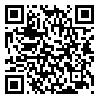Wed, Dec 31, 2025
[Archive]
Volume 6, Issue 3 (11-2024)
Int. J. Ethics Soc 2024, 6(3): 64-66 |
Back to browse issues page
Download citation:
BibTeX | RIS | EndNote | Medlars | ProCite | Reference Manager | RefWorks
Send citation to:



BibTeX | RIS | EndNote | Medlars | ProCite | Reference Manager | RefWorks
Send citation to:
Sadeqi-Arani Z, Mazroui Nasrabadi E. Ethical Challenges of Using the Internet of Behavior in the Medical and Healthcare Practice. Int. J. Ethics Soc 2024; 6 (3) :64-66
URL: http://ijethics.com/article-1-331-en.html
URL: http://ijethics.com/article-1-331-en.html
1- Department of management and Entrepreneurship, Faculty of Financial Science, Management and Entrepreneurship, University of Kashan, Kashan, Iran. , sadeqiarani@kashanu.ac.ir
2- Department of management and Entrepreneurship, Faculty of Financial Science, Management and Entrepreneurship, University of Kashan, Kashan, Iran.
2- Department of management and Entrepreneurship, Faculty of Financial Science, Management and Entrepreneurship, University of Kashan, Kashan, Iran.
Abstract: (1877 Views)
The Internet of Behavior (IoB) represents an evolution of the Internet of Things (IoT), utilizing behavioral data to enhance decision-making and service delivery. By integrating technology, data analytics, and behavioral science, IoB provides a robust framework for predicting and influencing human behavior. This technology is particularly transformative in the healthcare sector, where it leverages data from wearable devices and other digital tools to offer comprehensive insights into patients' physical and behavioral health. Such data facilitates accurate diagnoses, preventive care, and personalized treatment plans, especially for individuals with chronic conditions or the elderly. Despite its potential, the implementation of IoB in healthcare presents significant ethical challenges. These include concerns about privacy, data security, transparency, behavioral manipulation, equity in access, and the psychological and social consequences of continuous monitoring. Addressing these ethical issues proactively is essential to maximizing the benefits of IoB while mitigating its risks. It is imperative that the deployment of IoB technologies in healthcare does not compromise patients' dignity or lead to a perceived loss of independence, control, and privacy. Additionally, reliance on algorithms for IoB data analysis should not diminish human oversight in healthcare decision-making. To address these concerns, healthcare organizations must establish ethical protocols, including stringent security measures, informed consent procedures, and robust data protection strategies. Ensuring the secure and responsible use of patient data is critical to maintaining trust in IoB systems. Future research should prioritize the exploration of these ethical challenges, particularly focusing on the psychological and social impacts of continuous monitoring.
Keywords: Internet of Behavior, Ethical challenges, Medical and healthcare practice, Customized services
Type of Study: Letter to Editor |
Subject:
General
Received: 2024/08/8 | Accepted: 2024/08/20 | Published: 2024/11/2
Received: 2024/08/8 | Accepted: 2024/08/20 | Published: 2024/11/2
Send email to the article author
| Rights and permissions | |
 |
This work is licensed under a Creative Commons Attribution 4.0 International License. |







